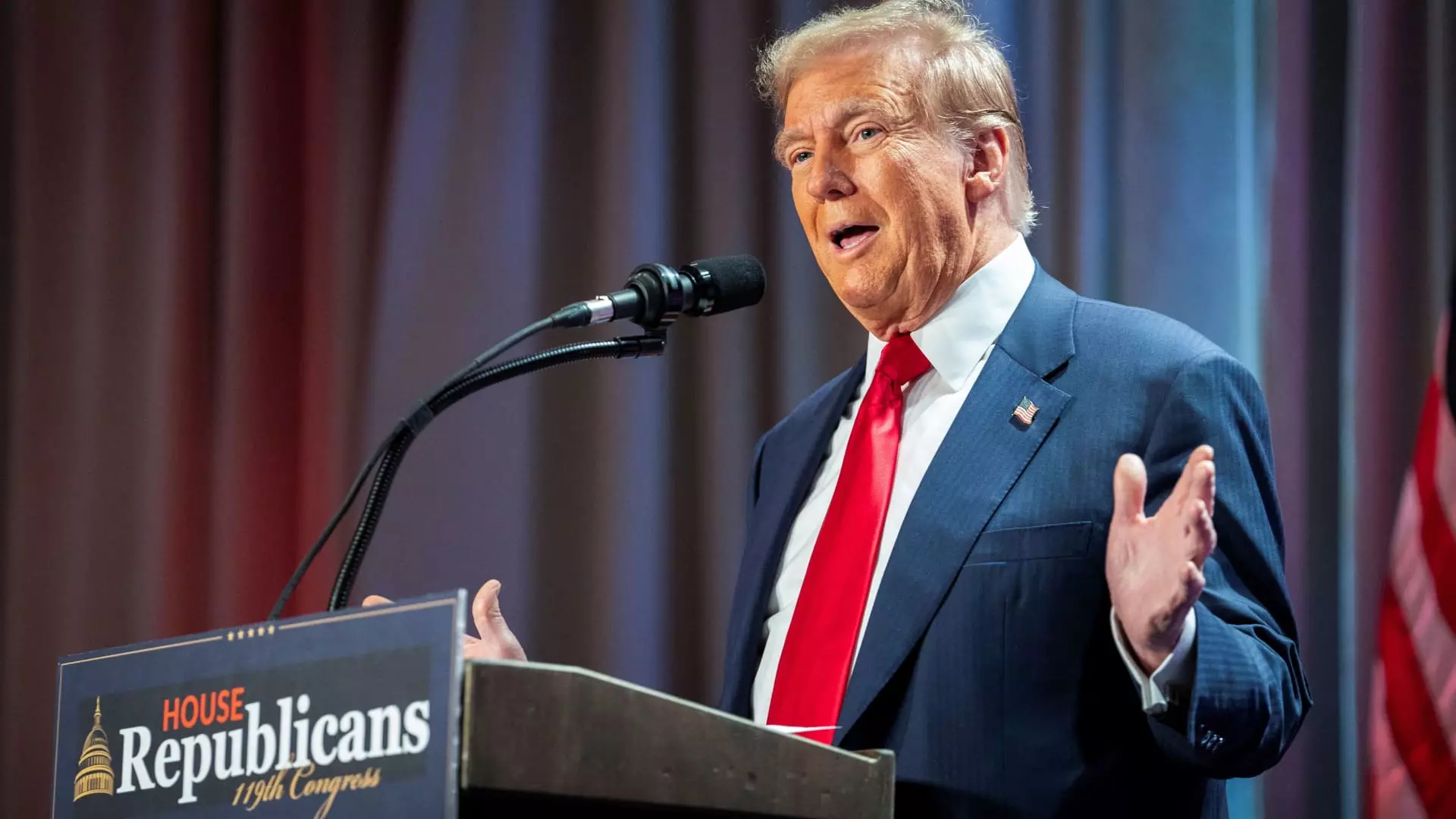The appointment of Chris Wright, a prominent figure in the oil and gas industry, to lead the Department of Energy (DOE) under President-elect Donald Trump signals a pivotal shift in the United States’ energy policies. This move not only reflects Trump’s ongoing commitment to fossil fuels but also indicates a broader ideological battle over energy production and environmental policy.
Chris Wright’s selection as the Secretary of Energy can be viewed through multiple lenses. As the founder and CEO of Liberty Energy, an oilfield services company based in Denver, Wright embodies the pro-fossil fuel ethos that resonates deeply with Trump’s energy agenda. With a storied career devoted to the oil and gas sectors, Wright’s ascendance to this role could exacerbate the ongoing tensions surrounding climate change discourse. Unlike many of his predecessors, who often acknowledged the critical nature of climate initiatives, Wright has been openly contrarian. His dismissal of climate change as a crisis and the comparison of governmental climate efforts to “Soviet-style communism” illustrate a stark ideological divide that may influence U.S. energy policy for years to come.
The energy dynamics in the United States have been evolving, particularly as demand surges due to technological advancements like artificial intelligence and electric vehicles. In recent years, U.S. oil output reached unprecedented heights, raising questions about the sustainability of such production in the long term. Wright’s commitment to fossil fuels suggests that he will advocate for policies that prioritize increased oil and gas extraction, potentially at the expense of renewable energy initiatives. The reality remains that while fossil fuels have enabled significant energy independence for the U.S., they also pose significant ecological risks. The challenge for Wright as the Secretary of Energy will be balancing immediate economic imperatives with long-term environmental sustainability.
The DOE is not merely a bureaucratic entity; it holds considerable power in shaping national energy policy. One of its primary responsibilities is managing energy diplomacy and overseeing the Strategic Petroleum Reserve, which Trump has expressed interest in replenishing. As Wright assumes leadership, we can anticipate a strong emphasis on increasing fossil fuel production and potentially sidelining renewable initiatives. The department also features crucial technological programs that support emerging energy innovations, and Wright’s stances on these issues will be critical in determining whether the U.S. will continue on a path toward diversifying its energy portfolio.
While Wright’s eccentric tactics, such as his 2019 media stunt of drinking fracking fluid to demonstrate its safety, underline his commitment to promoting fossil fuels, they also raise doubts about his ability to engage in nuanced energy discussions. Without political experience, his approach may lean towards incendiary tactics rather than collaborative dialogue, which could complicate future legislative efforts in the realm of energy production and sustainability.
Wright will undoubtedly face scrutiny from various stakeholders in the energy sector, particularly regarding his stance on renewable energy sources. The imminent challenges presented by climate change necessitate a diversified approach to energy production—a principle that Wright has so far resisted. His predecessor, Jennifer Granholm, championed initiatives centered on electric vehicles and sustainable energy sources, aligning more closely with contemporary global efforts to combat climate change. How Wright navigates the permitting processes for electricity transmission and advances in nuclear power—an area of shared interest among some political factions—will be critical in assessing his overall impact.
In essence, Chris Wright’s appointment could herald a renaissance for fossil fuels in U.S. policy. However, if history teaches us anything, it’s that energy policies must evolve to meet both current demands and the sustainable futures of generations to come. The tension between traditional fossil fuel dominance and the urgency of climate action will likely play out vigorously in the forthcoming years, and the outcomes of these policy debates could reshape the American energy landscape permanently.

